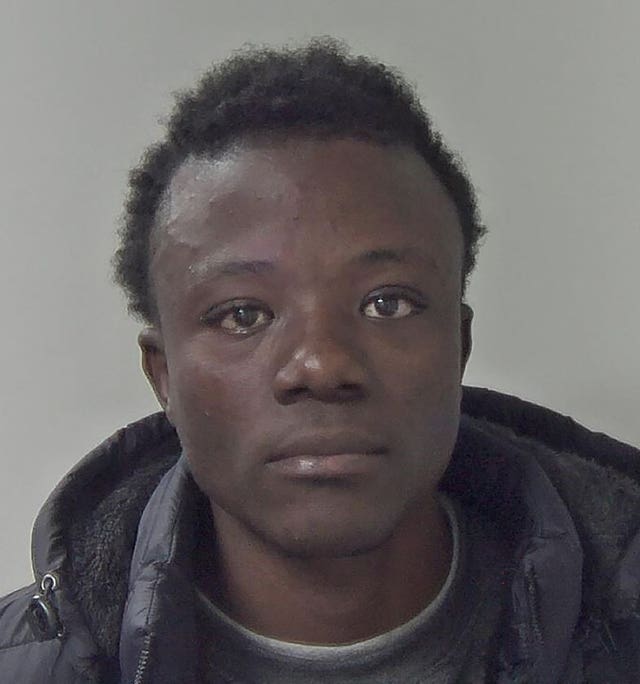Asylum seeker boat pilot loses bid to challenge convictions and sentence
Ibrahima Bah was sentenced to nine and a half years’ detention for the manslaughter of four people on the boat.

An asylum seeker convicted of manslaughter after four migrants died as he steered a boat across the English Channel has lost his bid to challenge his convictions and sentence.
Ibrahima Bah was sentenced to nine and a half years’ detention after the deaths as he piloted the “unseaworthy” boat between France and the UK on December 14 2022.
During a retrial at Canterbury Crown Court, Bah said smugglers threatened to kill him if he did not drive the boat, but the prosecution said he was not telling the truth and he owed his fellow passengers a “duty of care” as their pilot.
The Senegalese national, thought to be 20 years old, was also convicted of facilitating illegal entry to the UK.
At a hearing earlier this month, Bah brought his case to the Court of Appeal in a bid for the green light to challenge his convictions and sentence.

Jurors heard that the home-built, low-quality inflatable should have had no more than 20 people on board but carried about 45 people in the English Channel that night.
Richard Thomas KC, for Bah, previously described his trial as “touching on a highly politicised issue which gives rise to very strong feelings”.
Mr Thomas told the Court of Appeal in London that it had been a “joint endeavour” to travel to the UK, and that Bah’s actions “meant that a passage to the UK was available so tragically the deceased availed themselves of that passage”.
The barrister continued: “The availing themselves of the passage, which they did so knowing the risks involved, is precisely the autonomous choice that breaks the train of causation.”
Sitting with Mr Justice Dove and Mr Justice Murray, Baroness Carr dismissed this argument.
She said in her ruling: “The judge correctly analysed that the fact that the deceased volunteered to join the boat could not establish a break in the chain of causation; the evidence to that effect was thus irrelevant to causation.”
Baroness Carr also ruled that the trial judge gave the right directions to the jury, adding: “An instruction to the jury inviting them to consider whether the fact that the deceased boarded the boat of their own free will broke the chain of causation would have amounted to a misdirection.”
The Crown Prosecution Service (CPS) had opposed the appeal bid.
Duncan Atkinson KC, for the CPS, previously said: “This is a case where the passengers on the boat were acting in concert with their pilot.”
The barrister continued: “It was not the background or the scene setting… it was the continued act of facilitation at the time of their deaths which provided the circumstances in which the deaths occurred.”
A total of 39 survivors were brought to shore in the port of Dover after a UK fishing boat crew came across the sinking dinghy with help from the RNLI, air ambulance and UK Border Force.
Three of the people who died were known only as unknown male persons while the other man was named as Hajratullah Ahmadi, a 31-year-old married man who had come from Afghanistan and had a six-year-old daughter at the time of his death.





